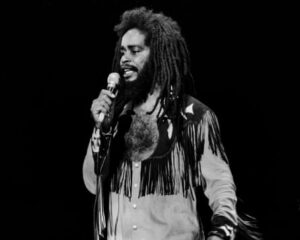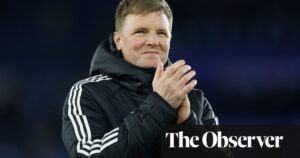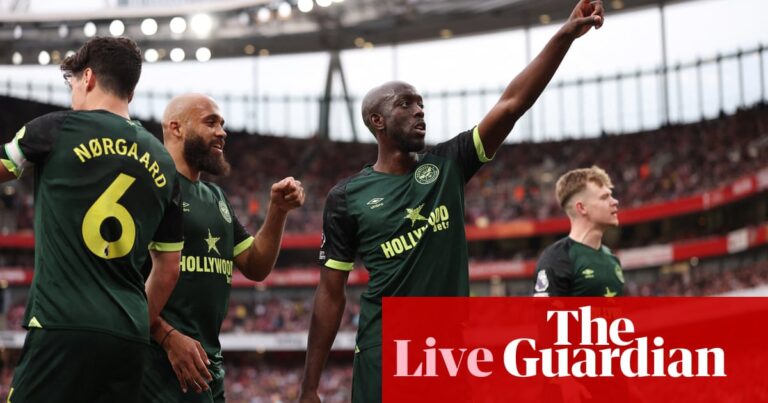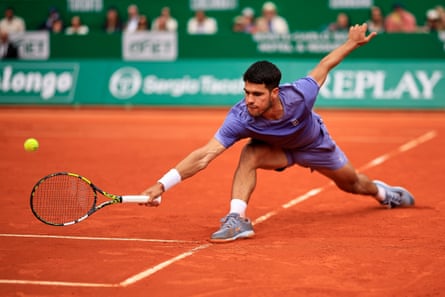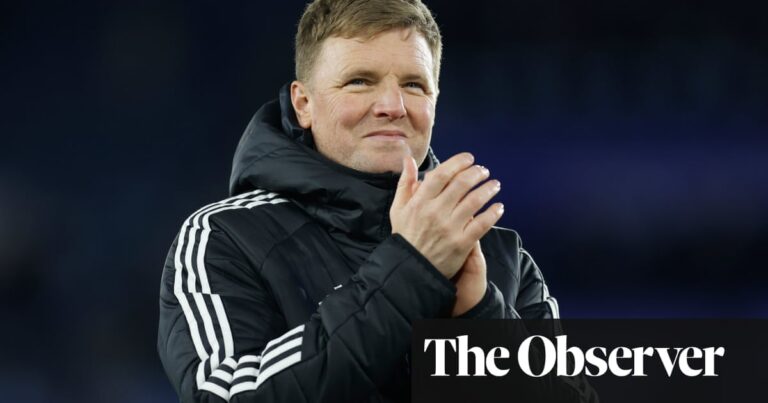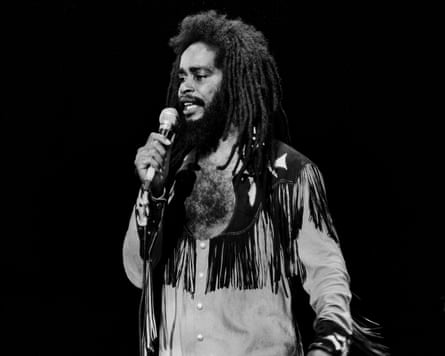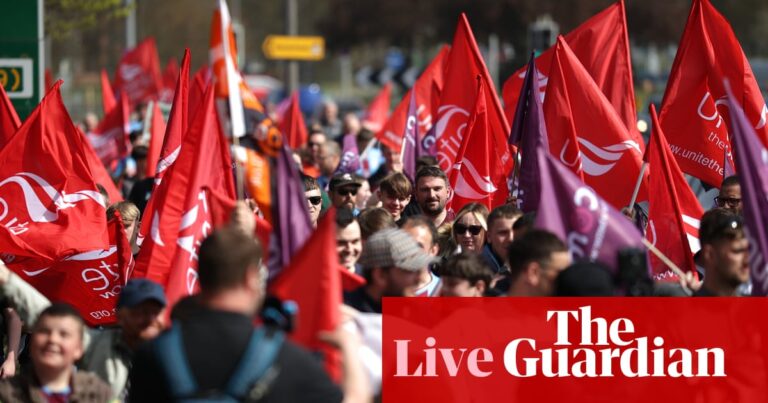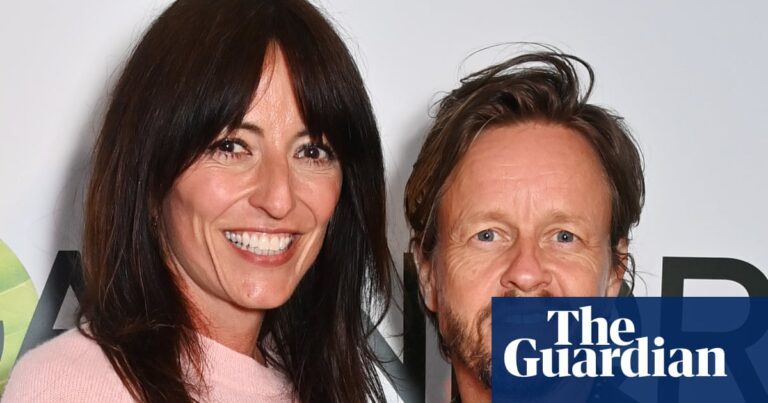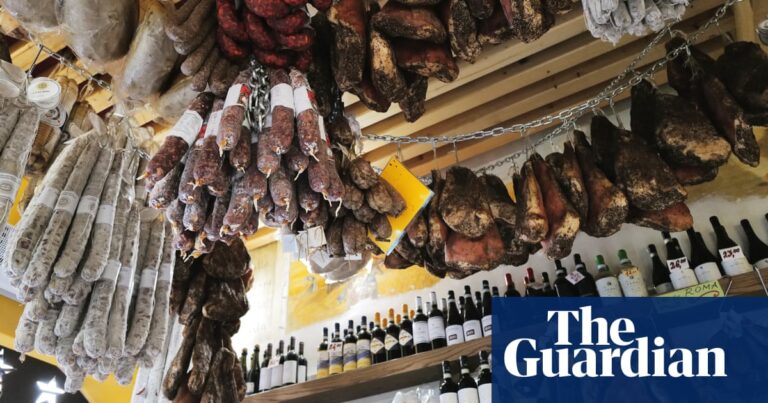What happens when you throw the Premier League’s slowest starters up against the club that has scored in the first minute of their past three games? For Wolves, the first 60 seconds against Brentford on Saturday carry their own curious quantum of danger. Which is not by any stretch to suggest that things get any easier for them after that.
It has become a commonplace to blame Wolves’s start to the season – they are bottom of the table with a single point – on the cruelty of the fixture computer. Their first six games were against Arsenal, Chelsea, Nottingham Forest, Newcastle, Aston Villa and Liverpool, with Manchester City and Brighton lying in wait.
The underlying numbers, too, are more encouraging than the league table would suggest. While Wolves have let in the most goals of any Premier League team, on the more sustainable long-term metric of non-penalty expected goals conceded, they are 11th. The fixtures pick up appreciably over November and December. Perhaps this is why there seems to be so little disquiet over Gary O’Neil’s position at boardroom level.
These are the crumbs of comfort to which Wolves can cling to as they contemplate their joint-worst start to a season. But then running a football club has never simply been an exercise in logic and numbers. Sentiment matters too, and even if results are a short-term phenomenon, the broader malaise many Wolves fans feel is not.
We could glimpse this during the closing minutes of the recent Liverpool game, as Wolves – 2-1 down and chasing an equaliser – patiently passed the ball around at the back, to the evident frustration of the Molineux crowd. “Stop it, honestly,” Gary Neville urged on Sky Sports. “It’s so frustrating. A lot of teams have forgotten the essence of football: get the ball into the feet of the most talented players.”
The best Wolves teams of recent years were always in a hurry: technically adept when they needed to be, solid when they needed to be, but with a strong sense of purpose and a clear idea of where the ball needed to be. These days the vision is a little more obscure. Speed of buildup has been a consistent complaint. Wolves were third for shots created from fast breaks last season and 11th this season, despite playing the sort of teams that should be conducive to counterattacking.
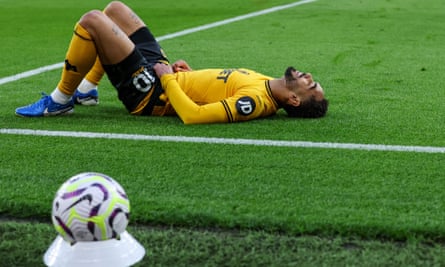
But it is at the back that the most pressing problems seem to reside. Conviction and morale appear to be the issue: individual errors, collective brain-fades, an unwelcome habit of subsiding under pressure. Seven goals conceded in the final 20 minutes of games hint at a slightly frayed mentality. It is here that Wolves’s short-term and long-term problems feel most in alignment.
The decision not to replace Maximilian Kilman, sold to West Ham for £40m in the summer, seems like a failed gamble. Yerson Mosquera’s bright start to the season was brutally cut short by a knee injury that could put him out until next summer. Craig Dawson and Toti Gomes have already missed games this season. Though the club’s sporting director, Matt Hobbs, recently said that signing a fifth centre-half was never the plan, for many fans this strategy seems to encapsulate the dilemma of the modern Wolves: a club increasingly trying to do the same with less.
By way of illustration, let’s examine the Wolves XI from 2022-23, in terms of most minutes played: José Sá; Nélson Semedo, Nathan Collins, Kilman, Hugo Bueno; Rúben Neves, João Moutinho; Adama Traoré, Matheus Nunes, Daniel Podence; Diego Costa. Of those, only Semedo is still in the side, though Sá is also at the club.
This is a frankly incredible level of upheaval in just two seasons. While part of this is the natural churn of a mid-table club, in part this instability is also the result of choices made over a period of years: the explicit decision to establish Wolves as a clearing house for talent.
after newsletter promotion
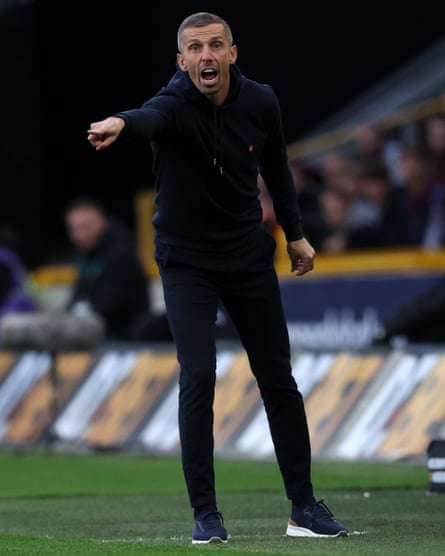
During the good years, it worked a treat: Neves, Moutinho, Raúl Jiménez, Diogo Jota, Pedro Neto, European nights, famous triumphs. But the increasing domestic struggles of the club’s Chinese owners, Fosun, have inevitably forced a belt tightening. The reliance on Jorge Mendes’s Gestifute agency has been reduced, but by the same token new signings have not been remotely of the same quality of the players being replaced. O’Neil was reported to be frustrated at the lack of investment in the summer, as Julen Lopetegui was before him.
In a recent interview with the Telegraph, the chairman, Jeff Shi said Wolves have not been in danger of breaching profitability and sustainability regulations. If we take this at face value, the implication is that Wolves’s new age of austerity is a deliberate Fosun strategy: an attempt to thread the fine line of maintaining Premier League status for as little outlay as possible, perhaps even trying to run the football club at a profit in order to plug holes elsewhere in the business.
Maybe this makes sense as a business strategy. But as a sporting blueprint, it feels particularly joyless. Quite apart from the fact that establishing survival as your overarching goal leaves you vulnerable to short-term fixes. Perhaps O’Neil pays for the current predicament with his job. Perhaps the next guy benefits from a fixture swing. Perhaps the show stays on the road for another few months.
Perhaps Wolves even stay up. Certainly you could make the case that there are at least three worse teams out there. But in the long term it is hard to identify a thread of hope in a club that appears increasingly hollowed out by forces beyond its control. In an oblique and inadvertent way, Neville was right: Wolves have forgotten the essence of football. Time is running out for them to rediscover it.
Source: theguardian.com

